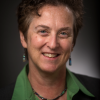
UCLA-Lambda Legal Study Proves Strong Link Between Marriage Bans and Lack of Health Insurance for Gay and Lesbian Partners
Find Your State
Legal Help Desk
(Los Angeles, June 24, 2010) — A new study co-authored by Lambda Legal and the UCLA School of Public Health finds a close correlation between state and federal marriage discrimination against same-sex couples and disparities in health coverage between married heterosexuals and partnered gay men and lesbians.
The study, released today in the online edition of the leading journal Health Affairs, found that partnered lesbians are only 28 percent as likely as married heterosexual couples to receive healthcare coverage for a partner through an employer. Gay men are 42 percent as likely. The study also found that these disparities are not remedied by other insurance options. Instead, lesbians and gay men are twice as likely as their straight coworkers to have uninsured life partners, which puts strains on personal health, family finances and public services. Same-sex couples—even if legally married or in a registered domestic partnership—often face discriminatory barriers to coverage within employers' plans, and when they can participate, the federal and most state governments tax those benefits as earned income.
"We've known for a long time that inequality has tangible physical and financial costs," said Lambda Legal Senior Counsel Jennifer C. Pizer, who co-authored the study. "This is the first time we've been able to precisely measure that discrimination in this critical field—health insurance—and it's far greater than we'd suspected. Even in California, with very good nondiscrimination laws, we see that unequal federal and state treatment of same-sex couples creates this enormous problem. As some of these uninsured people are forced to seek help through Medi-Cal, costs are shifted from the private sector to taxpayers. And as some are forced to put off treatment until the only option is the emergency room, the physical, emotional and economic costs to same-sex families are incalculable and intolerable."
The study, The Effects Of Unequal Access to Health Insurance for Same-Sex Couples in California, analyzes the responses of some 110,000 participants in the California Health Interview Survey ("CHIS") between 2001 and 2005. Previous studies have used smaller samples or assumed a same-sex partnership through the gender of members in a household, rather than compiling and assessing the many, specific survey responses collected in the CHIS.
"The data from over 100,000 Californians is the first to quantify dependent coverage disparities by sexual orientation," said Professor Ninez A. Ponce of the Department of Health Services, principal UCLA co-author and a senior research scientist at the UCLA Center for Health Policy Research. "By not allowing lesbian and gay couples to marry, and not respecting their status when they are married, government invites the private sector to pass the costs of discrimination onto families and communities. We've quantified how many gay people are hurt by the current policies, and it's greater than we thought."
The authors posit that the passage of the California Insurance Equality Act of 2005, which requires insurance providers to treat registered domestic partners the same as spouses, may have alleviated some of the observed discrepancies. But they conclude that healthcare reform on the national level cannot eliminate these gross disparities without eliminating the marriage-related rules that discriminate systemically against same-sex couples.
Pizer and Ponce are joined by UCLA School of Public Health co-authors Dr. Susan D. Cochran, professor of Epidemiology and Statistics, and Dr. Vickie M. Mays, professor of Psychology and director of UCLA's Center on Research, Education, Training, and Strategic Communication on Minority Health Disparities.
###
Contact Info
Contact: Tom Warnke; 213-382-7600 ex 247;twarnke@lambdalegal.org
Lambda Legal is a national organization committed to achieving full recognition of the civil rights of lesbians, gay men, bisexuals, transgender people and those with HIV through impact litigation, education and public policy work.

